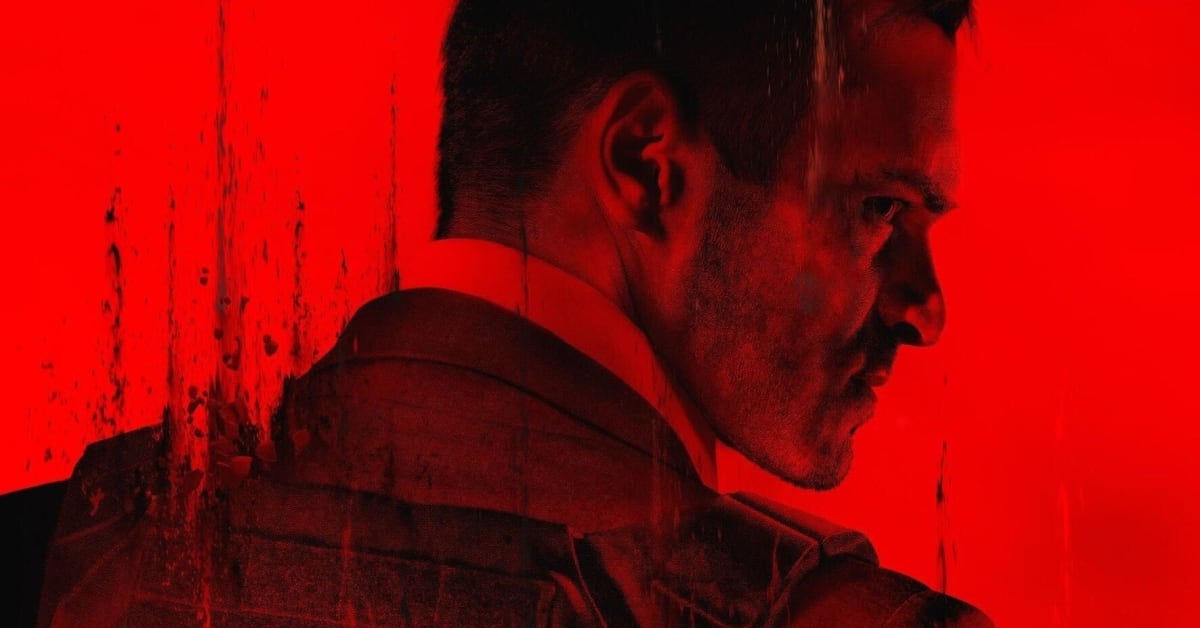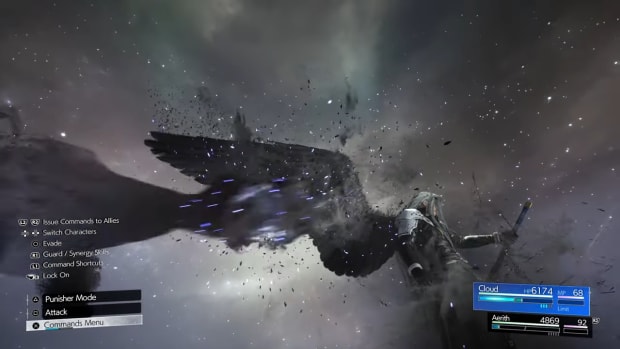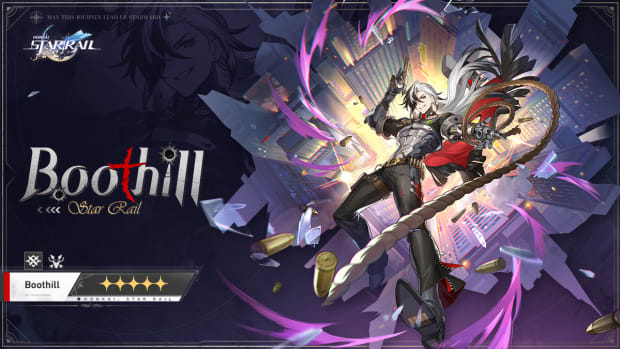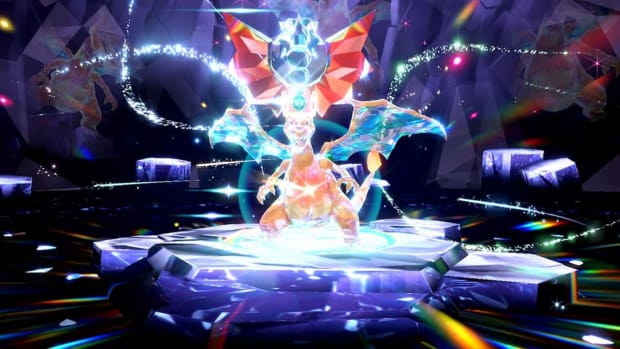
COD MW3 Makarov actor Julian Kostov: “I just want to be seen on equal terms as any other British or American actor.”
What’s it like to play Call of Duty’s most infamous villain? How do you audition for the role of primary antagonist in one of the best-selling video game franchises ever? And can you avoid being typecast as a terrorist after lending your face to one? Those are the questions we put to actor Julian Kostov.
Born in Bulgaria, Kostov cut his teeth on the UK acting scene. He features in Bourne prequel series Treadstone, and since providing performance capture for terrorist leader Vladimir Makarov in Call of Duty: Modern Warfare 3, he next appears in superhero horror-comedy The Toxic Avenger, alongside Elijah Wood and Peter Dinklage. Here’s what he has to say on acting, video games, and Eastern European representation.
GLHF: What was it like to be playing such a well-known legacy character in Call of Duty: Modern Warfare 3?
Julian Kostov: I rewatched all the cinematics from the previous games, and it was explained to me immediately how big of a deal this is, in case I didn’t know. And I’m happy they did that, because I thrive well under pressure, and I enjoyed the pressure of having to play such a well-known character. I knew it was not going to be the same as before.
One of the reasons, obviously, is the previous one was an animated character that was voiced by an actor, and now we’re doing full performance capture as well as voice, and it was going to be similar to my likeness. So it’s a completely different approach, a different way of making the cinematics, and so, as much as it was pressure to deliver for the fans, I also knew that I shouldn’t try to imitate anything, but in some way to trust that the writing is going to support what I’m doing and the rest of the cast is going to support the character. I think I’m very proud of how it worked out.
Can you talk a little bit about the audition process and what that was like?
For Call of Duty, it was a monologue, and I decided to do it three different ways. It was the same words, but I decided who I was talking to. The first time, I decided I was talking to a young recruit delivering this monologue. Then the second time, I imagined I was talking to the good guy who I’ve captured. He’s sitting on a chair, and I’m giving him the spiel. The last version I did was I’m captured by the good guy, I’m tied to a chair, and I’m still giving him this monologue… I did the first monologue from the floor of my cousin’s bedroom in London. Then the second one I was back in Sofia in Bulgaria, and it was a callback with like 20 people on Zoom from Activision and Sledgehammer Games and Infinity Ward. So it was a bit more pressure, and I was like, damn, this is really getting close.
Basically, they gave me lines to shout, because you know how in multiplayer, there’s a lot of voice lines, and I have to scream, “Get to the chopper!” Of course, not that particular one, but I had to scream a bunch of different things because they had to see if my diaphragm, if my voice, could support it, because we probably recorded 800 of these lines in a couple of sessions. So you really need to be - it’s a specific skill for voice acting to be able to support all that screaming and shouting and all these kinds of things. So I did those, and then I didn’t hear back for a while, and then all of a sudden, I was cast.
What was the monologue, out of interest?
I don’t know if I can say much about it, except that it was sort of informative of the backstory of the character, without getting too many details about anything. There were mentions of Urzikstan, which is how I figured out it was Call of Duty, because I was like, ‘this country doesn’t exist except in the game that I’m playing right now.’
So you’ve played Call of Duty before. What were your favorites? Do you have a favorite game in the series?
Modern Warfare 3. But apart from our game, I really enjoyed Modern Warfare 2. I love Zombies, too.
What areas of the character specifically were you looking to flesh out and bring your own thing to? Can you pinpoint any new things that you brought to the character?
This character is very, I would say, obsessed with timing, with loyalty and planning. We’re talking about it, and he’s the type of character whose biggest weapon and most dangerous thing about him is his mind. He’s very capable physically, and all that stuff, but the biggest threat here is how he can manipulate events like pieces on a chessboard, and so what I really wanted to utilize, which was something that I brought and we discussed and integrated into the character, was his linguistic ability.
And so he speaks Arabic in the scene to Samara, and in the scene that is probably my favorite scene in the game, where I’m with General Shepard in the helicopter, he flexes on them with you know… And he goes, ‘are we on a first-name basis, Herschel?’ So he says Herschel’s name in the Texan accent, then he says ‘MacTavish’ in a Scottish accent. Back to MacTavish, then he looks at Price and says in a British accent ’a promise’... So he’s the perfect spy. Essentially, he can blend in almost any country and be perceived as a native speaker, which I think is a very dangerous kind of a side to him. So I think that would be. That would probably be the most distinctive thing that we brought to it.
Do you have any problems with being typecast as a baddie? Would you like to play more good guys?
I’ve done a lot of these roles. I would say maybe one-third or a quarter of my filmography is probably this type of role. I don’t mind it necessarily because playing the antagonist, the evil guy, regardless of the nationality or accent that you have to put on, if it’s written well, it’s the juiciest kind of role. It’s more interesting being the good guy in some instances.
It is the stereotype in a sense, but because it’s written so well, it’s not a stereotypical character in itself because it’s three-dimensional, so it’s supported by good writing. But, yes, we do need writers to pay attention a little bit more to that and not just whenever it’s going to be a Bulgarian or Balkan or Eastern European character to be the bad guy or to be a prostitute.
In the case of women, it’s worse, obviously, because most women that I know who are actresses from Eastern Europe, they get to only be typecast as prostitutes or who only have one or two lines, and then they’re never again in the movie. But I think it’s definitely changing, and I myself have tried to do as much as I can to change this with my work, with mentoring and managing other Eastern European talents, like it did with Maria Bakalova, who eventually got to be Oscar-nominated for her performance in Borat, and I’ve been seeing that ever since. You know there’s scripts that she receives, and they’re written for Americans, but because now they know of this wonderful Bulgarian actress, they changed the American to Bulgarian, which has never happened before, and it’s a good sign that better roles are coming for people like me, and I’m grateful that the industry is recognizing that and that the writing is getting more diverse, including Eastern Europeans and Balkan people.
That ties into my next question about the representation of Eastern Europeans in media. Do you see the tide changing and there being better representation of Eastern Europeans?
Yeah, I think it’s a two-way street. Once we show up to that market, we get the opportunities, and a few of us are getting recognition on the world stage, let’s say, in the world industry. And with the better writing coming in and writers’ minds opening up and the producers and the casting directors, there’s going to be more opportunities, and there’s going to be more positive, let’s say, examples in the media and the narratives change. You know how you know media narratives are, but I think with good examples, be it sportspeople, musicians, actors, we’re going to get better representation. But I hope that, you know, the gatekeepers get to notice that now and start creating more opportunities for us.
We don’t want handouts. We just want equal opportunity as every other actor. For example, I have an American accent, but other Bulgarian actors don’t, but why should it matter? Why shouldn’t it be the right essence of the role? It’s always like that. I’ve been on the other side of casting. We’re always looking for the right person because you don’t know what kind of hair color you want or what race you want for that character, or nationality, or cultural background, or whatever it is.
I don’t blame any actor for taking any kind of role that was written for an Eastern European. That’s not their fault. I absolutely support that. But I think on the gatekeeping side, all we want to do is be seen, nothing else. I just want to be seen on equal terms as any other British or American actor. That’s basically it. I think that would be a good thing. I think it’s happening, so it’s positive.
Were there any scenes that you objected to and didn’t really want to do because they were a bit too dark, or are you kind of up for anything in terms of that stuff?
I mean, as an actor, the darker it is, the better. As a consumer of entertainment, I think it’s similar, so I didn’t object to anything, and I think we have to realize that this is entertainment, and at the end of the day, it’s just make-believe.
Can you give us a little insight into what Makarov is planning and what we can expect next from the character?
No, I think I have a sniper trained on my head. If I say something, I’m out.
So, in terms of your career, what’s next for you professionally?
It’s a very exciting time because I’ve been working non-stop for the last two years, and all of the movies and TV series and animation stuff that I’ve been doing, they’re all going to probably come out in 2024. Starting with The Toxic Avenger, where I play Budd Berserk, who’s a Joker-like blonde rap rocker, frontman for a rock band, who’s also a hitman with the whole band for Elijah Wood, and it’s a movie with Peter Dinklage, Elijah Wood, Kevin Bacon... it’s incredible. It’s called The Toxic Avenger. It’s a reboot of the original cult films from the ’80s and ’90s, and it was such fun, and I got to perform a couple of songs in the movie itself, so it’s pretty awesome.
Did you share any scenes with Peter Dinklage or Elijah Wood, and can you speak on what they were like to work with?
Oh, incredible. I only had one scene with Peter, and it was so fun to shoot, and with Elijah as well. We had a couple more scenes, but he’s just the coolest person and, to my delight as a big Lord of the Rings fan myself, he is, in fact, a huge Lord of the Rings fan and one of the guys who plays the drummer, Nick Nyong. He plays the drummer in the film, and he has an actual tree of Gondor tattoo on his arm. And then Elijah spotted that from across the room and went up to him and said, ‘Oh my god, is it the tree of Gondor?’ And he’s like, ‘Yeah’, and he’s like, ‘Oh my god’. So we started talking about Lord of the Rings, which was great, and he was just very generous and super cool and has the best laugh ever.






